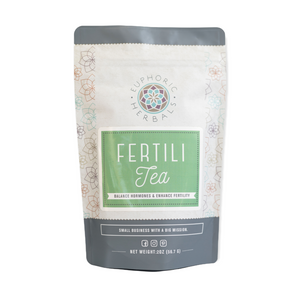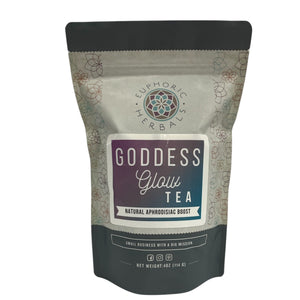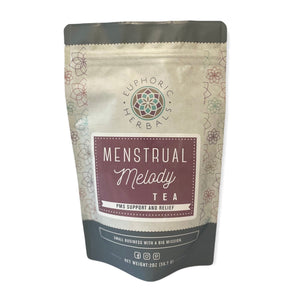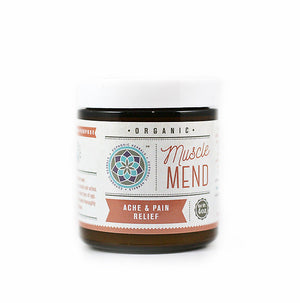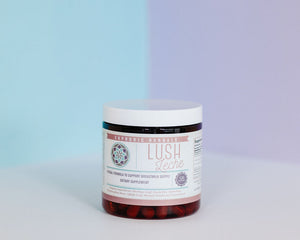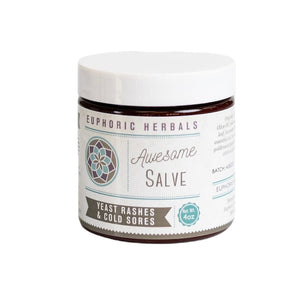For many people, headaches are a common occurrence and something they have to deal with every day.
Even the occasional headache can be a set-back and ruin a good day.
Headaches range from uncomfortable and annoying to unbearably painful and have different causes. Recurring headaches can definitely impact quality of life.
While there are many different prescription and over-the-counter medicines to treat headache pain, many people are seeking a more natural and holistic approach.
The good news is that certain herbs can provide relief for a headache, and other simple home remedies can help as well.
Here's more about which ones to try first.
Lifestyle Factors
Before turning to herbs for headache relief, it's a good idea to look at your lifestyle first to see if anything is triggering the headaches.
Being dehydrated is one possible cause for a headache. Drinking more water throughout the day could be a simple solution if dehydration is the cause.
Some headaches are cause by food sensitivities, which means that an elimination diet could prove useful to find out which foods are causing the problem.
Other headaches are stress-related or caused by lack of sleep. While stress management and good sleeping habits can help, many of the herbs for headaches also help with stress and sleep.
Tips for Using Herbs for a Headache
When using herbs for a headache, it's important to keep in mind that there are different types of headaches.
Migraines and tension headaches are two of the most common. Some people will get headaches related to hormonal changes, especially during pregnancy and PMS.
Different herbs will be more helpful for different types of headaches, and you may need to try several before finding the one that helps you most.
Most of these herbs can be taken as an herbal tea for headache relief.

Peppermint
Often used as an herbal remedy for stomach pain and indigestion, peppermint can also be very effective at relieving headache pain.
Along with antispasmodic properties, peppermint leaf also has anodyne (pain-relieving) properties. Peppermint tea can be very helpful for soothing headaches caused by indigestion and stress.
Peppermint oil has also been shown to be effective at relieving both tension headaches and migraines when applied diluted to the forehead and temples. (1)(2)
Lemon Balm
Lemon balm is especially soothing for the nervous and digestive systems. It can be very helpful for relieving headaches related to stress and tension.
Lemon balm has a mild sedative effect which helps to calm nerves as well as tense muscles. The sedative effect also helps insomnia and other sleep disorders.
Lemon balm features in this Headache Releaf herbal tea blend.
Lavender
Lavender is another herb known for its relaxing properties and ability to calm the nervous system. Like lemon balm, it can be very effective at relieving stress and tension headaches.
Herbalist Rosemary Gladstar recommends a combination of lavender and feverfew in a tea or tincture to alleviate migraines. (Rosemary Gladstar. Medicinal Herbs: A Beginner's Guide, pg. 151)
Lavender essential oil is another way to use this herb for headache relief. Massaging it into your forehead and temples or using it in aromatherapy can help with the pain. (3)
Passionflower
Passionflower is yet another herb with calming properties and a sedative effect. It can calm anxiety, stress, and nervous tension and encourages sleep.
Passionflower is most effective for stress-related headaches and for those who are easily angered or upset.
Feverfew
True to its name, feverfew has been used for centuries to treat fevers as well as other ailments. It is one of the most recommended herbs for migraine sufferers and can be used as a tea or tincture.
Along with helping to treat migraines, taking feverfew regularly is thought to reduce the frequency of migraines. (4)
Please note that feverfew is not recommended for use during pregnancy.
Skullcap
Skullcap is an herb in the mint family. There are two main varieties used medicinally: American skullcap (Scutellaria lateriflora), traditionally used by Native Americans, and Chinese skullcap (Scutellaria baicalensis), used for centuries in traditional Chinese Medicine.
American skullcap has a sedative effect and acts as a nervine to relax nerves. (5) It can also relieve headaches, especially those associated with stress, anxiety, and tension.
When using skullcap, be sure to buy from a reputable supplier. In the past, herbs and supplements labeled as skullcap have contained germander instead, which causes liver damage.
Try taking skullcap for headache relief in this herbal tea blend formulated with the true herb.
Ginger
Ginger has been shown to have anti-inflammatory and pain-relieving properties. It's commonly used for nausea and stomach pain, but can also be effective for headaches.
One study found that ginger powder was just as effective at treating migraines as a commonly prescribed migraine medication and with fewer side effects. (6)
Ginger root can be made into a tea or the powder taken in capsules for headache relief.
Butterbur
Butterbur is another herb that can help with migraines. It has been used medicinally at least as far back as the ancient Greeks.
An extract of the root has been shown in a few studies to help with migraine symptoms and frequency. (7) Care should be taken to only buy butterbur in a purified form as its unpurified form is toxic to the liver.
Other Remedies + Herbs for a Headache
Other herbs that can be especially helpful for a tension or stress-related headache include chamomile, catnip, and valerian.
Valerian is widely used as an herbal sleep remedy and calms stress and anxiety. Catnip also has a sedative effect, relieves headaches, and is suitable as a remedy for children.
Chamomile is another herb safe for use by children and can be particularly helpful for headaches coming from stress or indigestion. For greater effect, make a tea with equal parts chamomile and peppermint.
Apart from herbs, there are two other natural remedies that can treat a headache: caffeine and magnesium.
Caffeine is an interesting remedy because it can trigger headaches in some people and relieve them in others. By itself, caffeine can have positive effects on headaches and migraines, but it also seems to increase the effective of OTC medicines like ibuprofen. (8)(9)
You can try caffeinated tea or coffee for headache relief, but be sure to monitor whether it improves or worsens the pain.
Studies suggest that magnesium deficiency is more common in people who get frequent migraines, and supplementing with magnesium can reduce the frequency and severity of migraines. (10)
Trying a magnesium supplement to see if it helps your headache pain is an easy step. Just be sure to start slowly since magnesium supplements can cause digestive upset.
Precautions
Many of these herbs for a headache are very safe to use and will not interact with other medications.
However, you should always consult with your doctor or a natural health professional before starting a herbal regimen if you are pregnant, have a medical condition, or are taking medication.
If you are looking for headache relief while pregnant, this Headache ReLeaf Tea is safe for pregnancy and nursing.
Use Herbs to Beat Your Headache
If you frequently suffer from headaches and want a more holistic approach to treating them, try one or more of these herbs for natural headache relief.
Many of them will also help with sleep, stress, and anxiety, which may help to prevent headaches in the future!
Disclaimer: This post is for informational purposes only. It does not constitute medical advice and should not be substituted for medical advice. Please consult your health care provider, herbalist, midwife, or naturopathic physician before taking herbs, supplements, etc. Here's the link to our full disclaimer.






















































